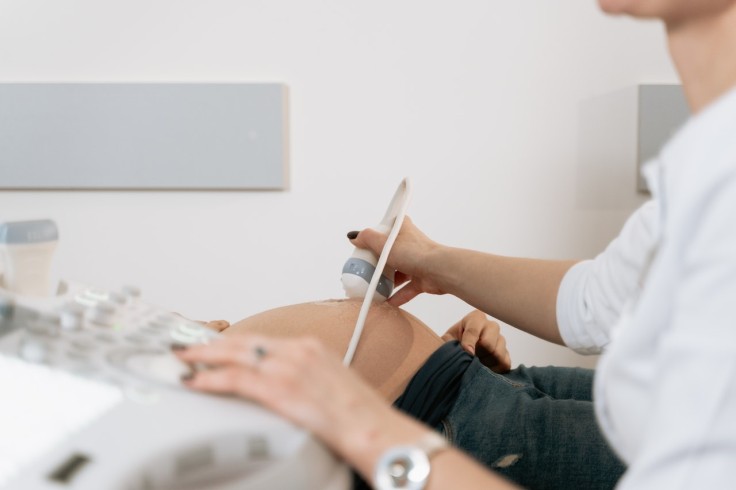
At 37 weeks pregnant, Krissy LePage found herself unexpectedly in a hospital where a doctor told her the baby needed to be delivered as soon as possible because she was very sick.
LePage could not believe what was suddenly happening. Hours prior, she was just at their home, sitting on the couch with her husband eating ice cream, opening baby gifts, and enjoying her last few weeks of pregnancy. On a whim, she took her temperature using a baby thermometer that was a gift, and to her surprise, found that she had a fever, although she felt fine.
She then recalled a nosebleed she had earlier in the day and the readings of her high blood pressure that had been consistently rising since. With all these plus the fever, they immediately threw together their bags just in case and went to the hospital. They did not inform anyone believing that the hospital would ask them to go home on the same night.
But they were not able to anymore. After some blood work, LePage was wheeled to the labor and delivery floor, where an OB explained that the baby urgently needed to get out as they were both in danger because she had HELLP Syndrome.
What is HELLP Syndrome?
LePage discovered that the nosebleed was already a sign of high blood pressure. Her blood work showed a failing liver and kidneys. The pain she was feeling in the upper area of her chest, which she thought was just her baby's bum pushing against her body, was already her organs failing. Her placenta was at risk of detaching at any given moment. Her platelets were so low that she could not have an epidural, and she could not have a C-section because she might bleed out and die.
That was how dangerous her situation was already because of HELLP Syndrome. The hospital even asked a hospital in Toronto for help as they were not that sure and confident to handle her case because HELLP is rare.
HELLP is the acronym for Hemolysis, Elevated Liver enzymes and Low Platelets. It is a syndrome with life-threatening pregnancy complications that is usually considered a variant of preeclampsia. It usually occurs during the later stages of pregnancy or after childbirth. Both conditions typically occur during the later stages of pregnancy or soon after childbirth.
Dr. Louis Weinstein named this syndrome in 1982. The HELLP syndrome can be difficult to diagnose because all of the typical signs of preeclampsia may not be apparent, such as high blood pressure and protein in the urine. Its symptoms are sometimes mistaken for gastritis, flu, acute hepatitis, acute fatty liver disease, gallbladder disease, or other conditions. While some of these conditions may also be present, there is no evidence they are related, as explained by Preeclampsia Foundation.
Further, it is critical to have an early diagnosis because it can cause serious illness and even death in about 25 percent of its cases.
LePage recalled that the only symptom she had was swollen feet. She thought it was just because of heat and pregnancy, so she did not have it checked with her OB. Fortunately, her OB demanded for her to stop working at 34 weeks due to her fast-paced working environment, with lots of bending and lifting. The doctor mentioned it was to be safe against preeclampsia that could become a concern. She was advised to rest as much as possible because there were no other symptoms.
Not everything is a pregnancy symptom
She was hooked up to magnesium sulfate to prevent seizures, making her drowsy, and she started induction immediately. LePage barely remembered what happened for the next 12 hours after that, just that she wished she had an epidural because she felt raw and intense contractions.
She also remembered that she did not care about anything, even herself, but just wanted her son to be well. In all those surprises and shocking news, one thing went right. The baby was in a perfect position, so after only a few pushes, the baby came out absolutely healthy. She may have been still in danger, but LePage found out that delivering the baby and the placenta out is typically the cure for HELLP, though this is not always the case.
She got better right away without any lasting organ damage. She was up and walking the next day. She stayed for a few days in the hospital for a platelet transfusion and took blood pressure medication for a few weeks for precautionary measures.
LePage knew she was lucky. It could have gone worse.
She, however, struggled mentally, blaming herself for putting their baby in danger, for not researching enough, and for not being sensitive enough. But, it was a comfort for her to know that there is nothing a mother does or does not do that can cause HELLP. It is that rare.
For pregnant moms, though, LePage suggests paying attention at all times. Advocate for themselves if they think something is not right. Ask their OB for anything and everything that will be safer. Ask for blood work. Lastly, pregnant women should not assume everything is just a pregnancy symptom.
Related Article: Snoring in Kids: What Troubling Signs Parents Need to Take Seriously